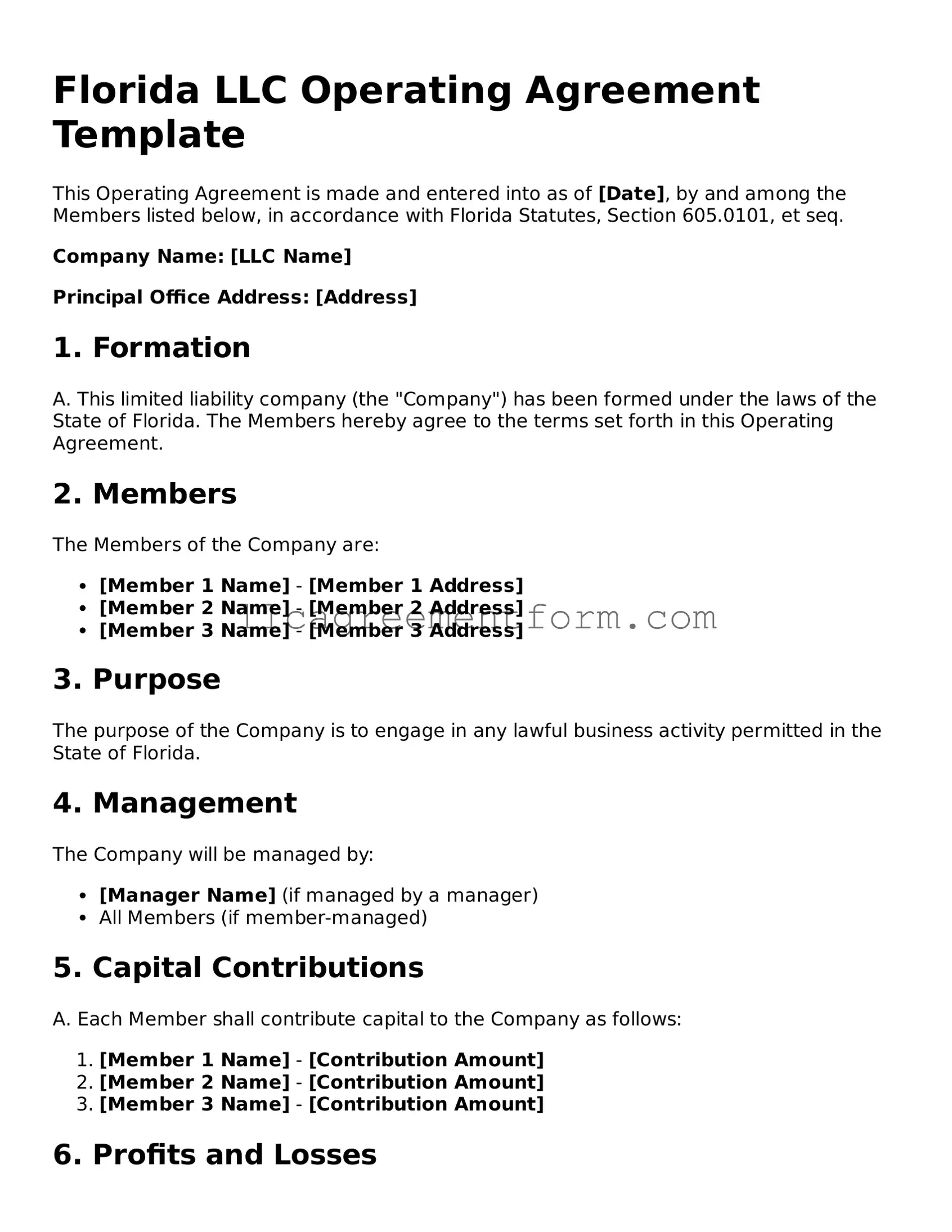Free Operating Agreement Document for Florida
The Florida Operating Agreement form is a crucial document that outlines the management structure and operational procedures for a limited liability company (LLC) in Florida. This agreement serves as a roadmap for the members, detailing their rights and responsibilities while ensuring compliance with state laws. To get started on establishing your LLC's framework, fill out the form by clicking the button below.
Get Operating Agreement Now

Free Operating Agreement Document for Florida
Get Operating Agreement Now
Don’t stop halfway through your form
Finish Operating Agreement online with fast editing and easy download.
Get Operating Agreement Now
or
▼ PDF
